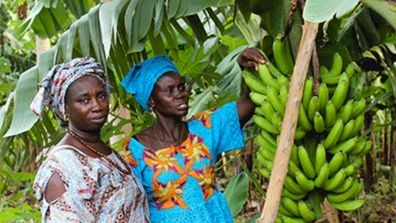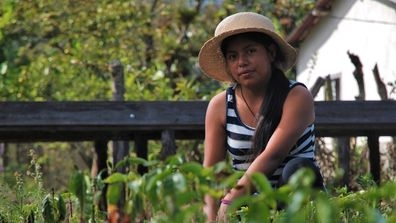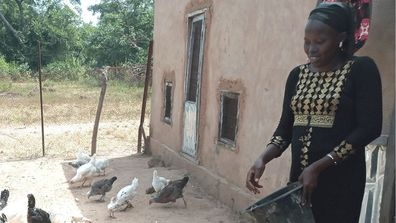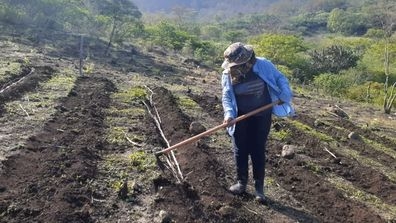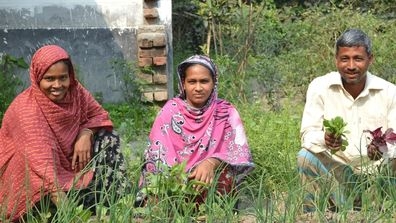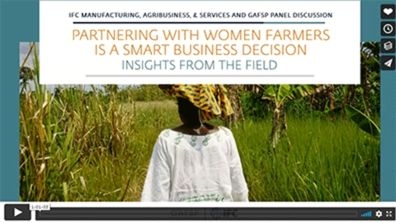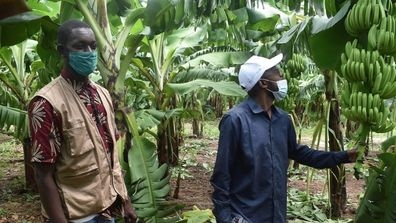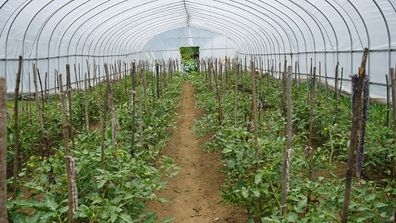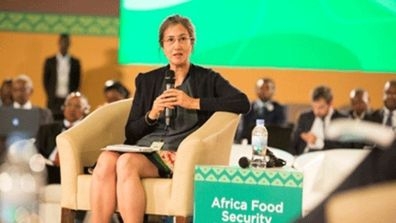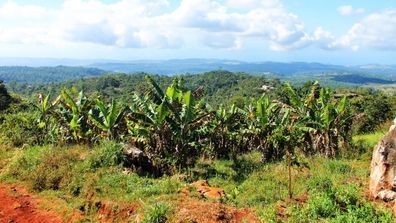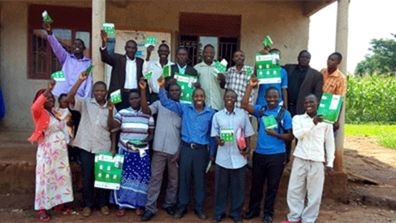Cultivating a Small-Scale Farming Approach to Improve Food Security
When provided with the right tools and resources, small-scale food producers can respond with remarkable speed and flexibility in times of crisis – a spike in conflict worldwide and the COVID-19 crisis have shown that. Five years after successfully testing the MMI, GAFSP is now funding small-scale food producers directly through the producer organizations that represent them.
GAFSP Puts Farmers First in New Funding for Producer Organizations & Countries
GAFSP announced $121 million in new grants for nine national governments and, for the first time, an additional $30 million for producer organizations based in 12 countries worldwide. This funding aims to strengthen sustainable, inclusive, and resilient food systems in the world’s poorest countries, in response to rising food insecurity linked to COVID-19 and climate change.
Mali's Young Entrepreneurs Get a Fresh Start
The GAFSP-funded Inclusion of Rural Youth in Poultry and Aquaculture Value Chains in Mali project works with CNOP in Mali to support rural youth in creating income-generating activities that foster food and nutrition security. The young entrepreneurs have been provided with technical training, including how to set up an organization, and how to manage the finances for poultry and fish farming value-chains.
Bringing Water back to Honduras’ Dry Corridor
Since 2017, across 25 municipalities of the Dry Corridor, the US$30 GAFSP-supported project has been implemented to bring food and nutrition security to Honduras’ driest areas, reaching more than 12,000 households through the installation of water irrigation technology and climate-resilient agriculture, enabling farmers to provide more nutritious foods for their families as well as for the market.
Prioritizing Climate Resilience: Building a New Policy Consensus with Smallholder Farmers
GAFSP and the SDG2 Advocacy Hub co-hosted a virtual side event, Prioritizing Climate Resilience: Building a New Policy Consensus with Smallholder Farmers, at the Committee on World Food Security (CFS 49). Watch the recording, hear from the speakers and explore the highlights of the event.
Panel Discussion: Partnering with Women Farmers is a Smart Business Decision
This exciting panel discussion highlights examples of gender smart solutions that are successfully creating inclusive agricultural value chains across Africa.
Building Knowledge to Tap Senegal’s Growing Banana Market
Since bananas are in great demand in Senegal’s cities, many farmers struggle to make ends meet when they cannot be harvested. There is a name for the season during which bananas can’t be harvested: the ‘soudure’. During these times, some households may not be able to afford food, or consume less due to lack of resources.
Keeping Bhutan’s Spice Mountains Watered
In southwest Bhutan, 6,500 people have been assisted in increasing the quality and quantity of produce like rice, maize, potato, vegetables, quinoa, citrus, apples, and potatoes, as well as high-value spices such as large cardamom and ginger.
Insight Series: Natasha Hayward
Natasha Hayward is GAFSP’s outgoing Program Head. Presenting the first piece in this series, she reflects on her past six years and offers her thoughts on the Program and its future.
Technological Innovation for Agroforestry and Agriculture Program in Haiti
This project aims to increase agricultural productivity and improve the use of natural capital through the adoption of sustainable technologies.
Banking on Partnerships for a Digital Future
E-Granary, a mobile communication and payment system, creates a virtual space for brokering commercial partnerships and contracts between farmers, buyers, and input dealers while connecting farmers with financial services at low transaction costs. The platform is used by more than 38,000 farmers, almost half of them women.
Financing for Food Security: Smallholder Priorities in the Global Effort to End Hunger
As part of the UN Food Systems Summit Pre-Summit, this affiliated event will bring together smallholder farmers, country representatives, and other partners to speak to their experiences in accessing financing through programs such as GAFSP.
